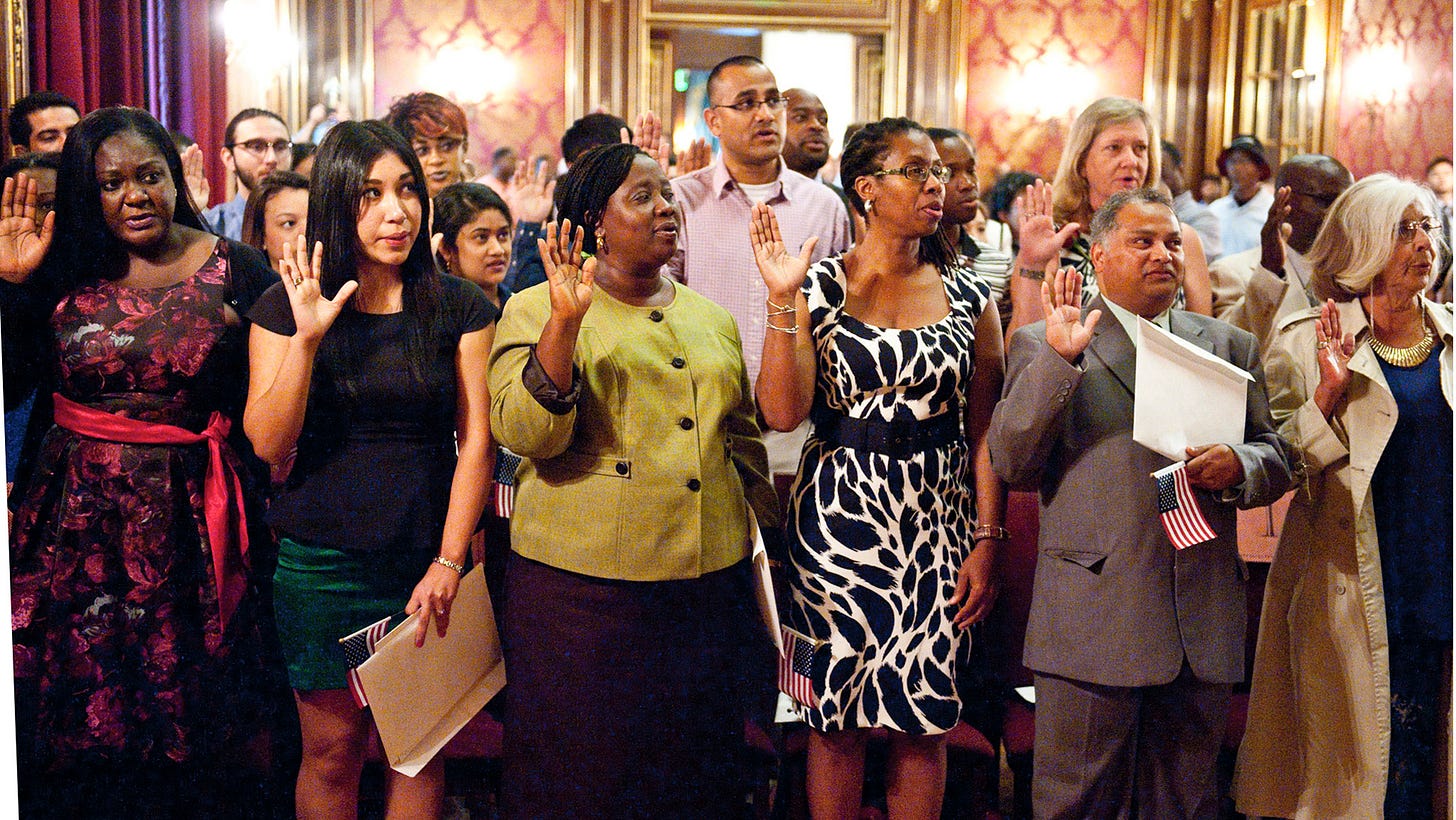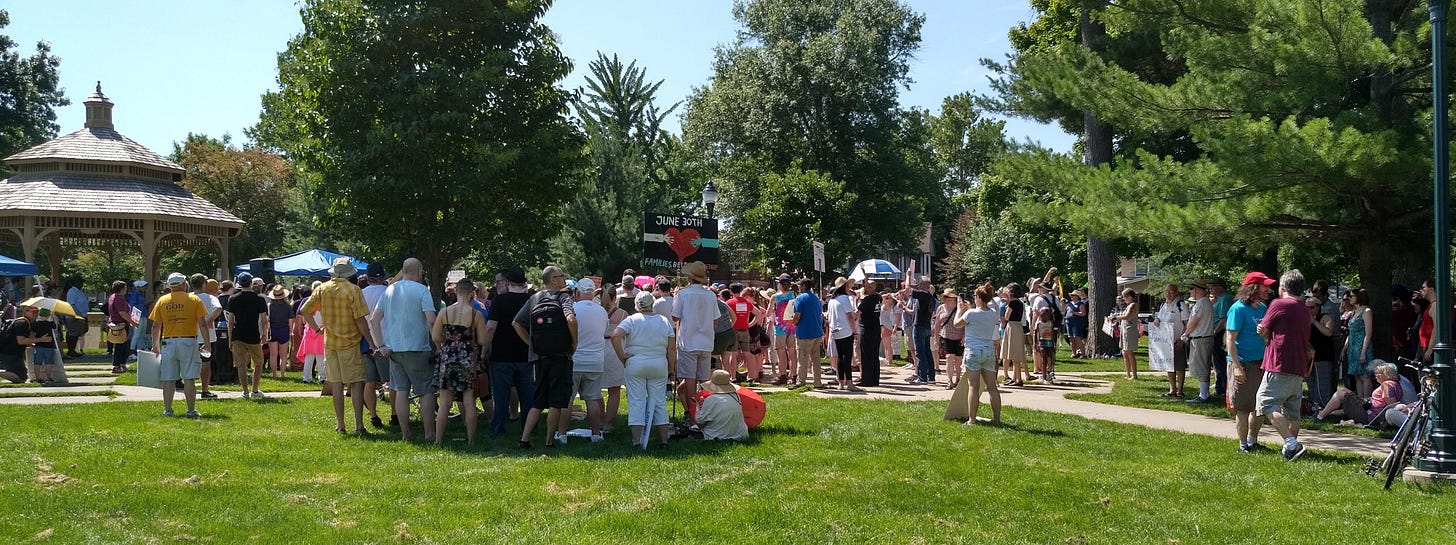Time to face reality and enact immigration reform
There are real problems in our broken immigration "system." Only by acknowledging them can we find real solutions.

Immigration is one of Americans’ top concerns this election season, but that doesn’t mean there is meaningful debate on the topic. Instead of a focus on real problems and potential solutions, we see politicians bandying about inflated numbers, scapegoating, and lying about eating pets. This bloviating is as disconnected from reality as it is distracting. America’s immigration system has needed serious reform for decades, but we aren’t getting serious policy discussions from our politicians.
For immigration to be such a hot button, the numbers must be record-bustingly high, right? Not exactly. Border encounters have waxed and waned over the past few years; right now, they are around the same level as they were under George W. Bush. Importantly, border encounters are law enforcement encounters–signs of a controlled border, not a breached one--and those numbers should be easy to manage with a good system.
Then is the problem to do with crimes or jobs? Some people would like you to believe that, but no. Immigrants commit far fewer crimes than native-born Americans, and some border cities are among the safest in the country. Meanwhile, we have not only low unemployment, but also historic labor shortages in agriculture, construction, nursing homes, and other industries. Immigrants are causing no crises here--and they could help solve the labor shortage.
The problem seems to be about perceptions, not reality. Consider this: while the media has been focused on our southern border, we have barely noticed absorbing a half-million Ukrainians.
Why the difference? First, our immigration “system” is a bureaucratic mess. Millions of people are waiting for green cards, sometimes for more than a decade. Millions more are here–legally–waiting years for decisions on their asylum requests.
Our treatment of Ukrainians showed how much better things can be. Federal agencies coordinated efforts between American citizen sponsors and local support organizations. Refugees were allowed to work upon arrival. Paperwork was processed in weeks.
By contrast, the recent southern border “chaos” reeks of sabotage, not mere dysfunction. The Texas governor sent immigrants off on a whim, busing them out in the middle of the night, alerting no one (even local organizations) that they were coming, engaging in political stunts like directing them to Vice President Harris’ house. These tactics were designed to cause disruption and outrage, and they worked, straining resources in Chicago, New York, Denver, and elsewhere. By contrast, it’s been business as usual in other major asylum-seeker destinations like Miami, Houston, and Los Angeles that weren’t busing destinations.
Beyond this deliberately cruel treatment, what has made settling southern border asylum seekers so challenging is that, unlike Ukrainian refugees, they are prohibited by law from working for 180 days and are ineligible for many assistance programs. So they cannot support themselves and they cannot get outside support after an often-harrowing journey.
America is moving into a future with more people, more disruptions, and more global migration. We need to address the problems of our immigration system based on reality, not on a political fantasyland. So long as America is vibrant, people will come here. It’s a classic example of a first-world problem, one we should, in fact, be grateful to have.
And, realistically, we need immigrants. There are simply not enough native-born Americans who are willing to maintain our farms, solve our housing crises, or care for us as we age. And immigrants often come with bold ideas that we all benefit from.
If some politicians didn’t find a broken immigration system so useful, it’s hard to imagine a better example of an own goal in public policy.
So let’s make a future where we will not just endure but thrive: let’s fix more than the border. Let’s build systems and resources to make coming to America humane, judgments swift, deportations fair, and resettlement successful. We can do better, and if we put aside the rhetoric and focus on real people and real problems, we will.
Kelcey Patrick-Ferree and Shannon Patrick live in Iowa.
Originally published in the Iowa City Press-Citizen on October 12, 2024, under the headline “Iowa City Writer's Group: Thoughts on immigration reform.”


